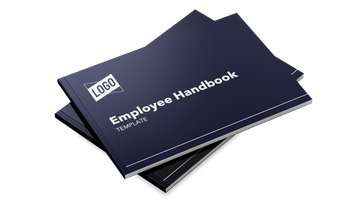
Table of contents
- 1.What Constitutes a “Bad Hire”?
- 2.9 Hiring Best Practices to Follow
- 3.Build a strong employer brand
- 4.Create effective job descriptions
- 5.Promote from within
- 6.Properly determine the status of each position
- 7.Require applications
- 8.Create an interview process
- 9.Administer background screening
- 10.Don’t skip reference checks
- 11.Social media screening
Hiring new talent is an essential part of an organization’s growth and development. Bringing on new talent can bring in fresh insight and new ideas. Our lives have changed enormously since the COVID-19 pandemic. As a result, the hiring process now needs to pivot in response. The process of hiring can be complicated and requires a lot of resources. When done poorly, hiring employees who have not been screened properly can cost your small to medium-size business a lot of money. Some consider these employees “bad hires.”
In fact, according to the U.S. Department of Labor, the average cost of a bad hire is up to 30% of the employee’s first-year salary.1 This means if you hire an employee at a starting salary of $100,000 and they turn out to be a bad fit, you will lose roughly $30,000. Other industry leaders report costs as high as $240,000 after factoring in all the variables.2 This can result in substantial setbacks, lost productivity and even a declining company reputation. Depending on the situation, bad hires may also lead to complaints, claims and even lawsuits. So, how can you help protect your company during the hiring process? By establishing hiring best practices that you consistently follow.
What Constitutes a “Bad Hire”?
The term “bad hire” can be misconstrued as a malicious employee who was out to get you from the start. However, that is not necessarily the case. A bad hire is simply an employee who turns out not to be a match within their individual role or within the company. In some instances, a bad hire could have misrepresented their skills or experience during the hiring process and was unable to deliver once hired. Bad hires are often believed to be individuals with a fast turnover rate; however, they can also constitute employees who underperform or fail to fit in to the company culture. This can make it hard to spot during the recruitment process.
9 Hiring Best Practices to Follow
To reduce your risk of onboarding bad hires, it is beneficial to create and utilize best practices. This will give you a standardized method to apply during the talent acquisition process.
1. Build a strong employer brand
One of the first steps in reducing the risk of bad hires is to make sure that your organization is desirable to high-quality candidates and your current employees. Having a strong brand can make your company desirable which could lead to an increase in qualified applicants. Having a strong brand identity, image, culture and personality is key. This not only reduces the rate of turnover, but it can also increase the likelihood that your ideal candidate makes the effort to seek you out.
2. Create effective job descriptions
Research shows that the best candidates are off the market in just 10 days. To move quickly enough to attain the best talent, it’s important to have a streamlined process for talent recruitment. This includes creating effective and engaging job descriptions that will attract the right people. Job descriptions are the foundation of the hiring process, so take your time when creating them. Be as specific as you can—the more detailed you are about the duties and requirements for a position, the more likely you will receive applicants who qualify for the position.
To validate that you are attracting a diverse set of candidates, highlighting the company’s culture and values is another fantastic way to attract qualified applicants. An innovative approach can also help catch the eye and interest of qualified candidates who have may been viewing job descriptions for an extended period of time.
Creating a thorough job description is also important in limiting potential legal exposure to discrimination claims and other compliance risks. Always include the essential functions of the job for compliance with the Americans with Disabilities Act (ADA) and similar state and local laws. If the job includes physically demanding duties, you must include them.
3. Promote from within
Looking at your current job force and sourcing for internal promotions can benefit your company tremendously. While external candidates may offer a fresh perspective, your qualified internal employees are great candidates as well. Promoting from within can help save your company time and money. It can also help the overall morale of your staff, in addition to employee retention.
There is less risk when promoting from within. You won’t have to worry about the percentage of new hires who do not make it past the first year of service since you’ll know the internal candidate is likely the right fit for the role as they have already been vetted and observed. Your internal candidate is already familiar with the company culture and is likely looking to stay with the organization.
4. Properly determine the status of each position
Another important measure for protecting your business from bad hires is to make sure that you are properly determine the status of your open positions from the start.
The determination of status for job positions refers to whether the position is subject to the Fair Labor Standards Act (FLSA) and similar state laws or qualifies for an exemption. Th FLSA status of a position will be either exempt or nonexempt. The FLSA status of a position will impact eligibility for overtime, applicability of minimum wage requirements, and other wage and hour requirements, and any exemption from the FLSA and similar state laws is generally determined based on a position’s job duties and salary tests. This can be a challenging compliance task and have expensive repercussions if done incorrectly so if you are unclear on how to do this accurately, make sure you work with an HR expert to review FLSA status determinations in advance. This should be done before you post the available position anywhere. FLSA status determinations is not up to you—you need to follow the legal parameters for workers in the U.S.
Generally speaking, exempt employees are paid a salary that meets the applicable salary threshold and not compensated based on number of hours worked; non-exempt employees are paid by the hour and entitled to overtime pay. If you’re engaging an independent contractor and want to make sure you are properly classifying them as a contractor versus an employee, that is a separate type of analysis that must also be performed according to applicable federal, state, local, and industry requirements.
5. Require applications
Sometimes, small to medium-size businesses make a hiring decision without the use of an application. While it can be tempting to use a referral and shorten the hiring process, this is not an ideal way to reduce the risk of a bad hire. Applications are legally binding documents that require a signature. This means that there is accountability regarding the legitimacy of the information you receive. It may also help protect you from employment claims such as discrimination.
Applications are an effective way to stay compliant, however, they need to be updated regularly as employment laws impacting application requirements change frequently. As an example, you should validate that you are up to date with disclosure laws, such as “ban the box.” This law refers to removing or limiting questions about criminal history from the initial application form and it does vary by state and locality. Some states and municipalities have also passed laws prohibiting employers from asking about salary history and even requiring employers to disclose a position’s salary range. Overall, you should make sure that your application is up to date with all applicable compliance laws and regulations to avoid potential fines or lawsuits.
6. Create an interview process
When you begin to interview applicants, have a process in place that allows for replication over time. This helps increase the likelihood that your interviews are consistent and compliant. If you do not have a system that is followed in the same manner for each applicant, you may open your company to serious legal risk.
Some ways to improve the interview process include training managers about proper techniques and preparing questions in advance. You should have a list of open-ended questions that encourage the candidate to speak and a list of pre-approved follow up questions that may be asked as needed. The questions should only be based on any knowledge, skills or abilities required for the job.
All questions that may elicit information about age, gender, religion, national origin, marital status, disability or other protected classes, even indirectly, need to be avoided in the interview process. You should also avoid asking any prohibited questions, such as those that have to do with criminal or salary history. You should also avoid making any hiring decisions based on a person’s physical appearance, such as their hairstyle. Many states and localities have passed laws called CROWN Acts, which prohibit discrimination based on natural hairstyles or any physical characteristic associated with race.
The goal is to conduct each interview without allowing any personal, sometimes unrecognized, bias to affect the decision-making process.
7. Administer background screening
Conducting background checks is a way to secure information about your potential candidate. Background check laws and regulations can vary by state, locality, and industry, so using a background screening provider is a good way to help stay compliant with the Federal Trade Commission under the Fair Credit Reporting Act and other industry, local, state and federal laws. Doing so may provide you with an added layer of protection from various legal issues. Make sure the background screen is administered at the proper time in the application process. This varies based on location and is a topic that is evolving, therefore don’t assume you can follow the same screening of a candidate for a position based in New York City that you can follow in Los Angeles. If you have already offered a candidate a job and the background screening results change your decision, take the proper steps to avoid legal problems. You may want to work with legal counsel in this case to help reduce the risk of adverse actions. The background checks can include criminal screening, verifying employment and education or more depending on the job responsibilities.
8. Don’t skip reference checks
Employee references should also be checked once a candidate has cleared their background screening. While it can be cumbersome, doing so can give you direct information on how qualified an applicant is. It can provide additional detail that the background screening cannot capture. Ask for job title, job responsibilities and any special projects that the candidate has worked on in the past. You should create a standardized list of questions and utilize them for each applicant to avoid compliance issues. While checking references, keep in mind that some may only provide you with hire and termination dates, but others may give you a better understanding of the candidate’s qualifications. Avoid any questions that could put you at risk of legal issues.
9. Social media screening
With the increasing prevalence of social media, some employers opt to utilize this as a screening tool. While sites such as LinkedIn can be beneficial based on the intent of the platform, other social media sites may not be as effective. One thing to consider when using social media as a screening tool is being sure to avoid discrimination, bias or using information that is prohibited based on what you may see. For example, some salary history bans prohibit employers from using salary history found on social media as a factor in the hiring process or determining salary. As a result of this risk, some companies stay clear of this screening option. As with any process, if you are going to use social media as a screening tool, you should do so under the guidance of an attorney and have standards in place and communicated to all hiring managers that clearly defines the practice.
Once you make a decision and hire a new employee, make sure that they have a positive onboarding experience. This can help set your newly hired employees and your business up for success. TriNet also offers a variety of tools to help reduce the risk of a bad hire. Using our performance management tools, you can transform employees into productive and effective teams while aligning employee with company goals. To learn more about how TriNet can help you protect your company during the hiring process, contact our team of HR experts.
This communication is for informational purposes only; it is not legal, tax or accounting advice; and is not an offer to sell, buy or procure insurance.
1 U.S. Department of Labor, “Employment Statistics.”
2 Business News Daily, “How Much Is That Bad Hire Really Costing Your Business?”
3 Office Vibe, “12 Recruiting Statistics That Will Change the Way You Hire.”

TriNet Team
Table of contents
- 1.What Constitutes a “Bad Hire”?
- 2.9 Hiring Best Practices to Follow
- 3.Build a strong employer brand
- 4.Create effective job descriptions
- 5.Promote from within
- 6.Properly determine the status of each position
- 7.Require applications
- 8.Create an interview process
- 9.Administer background screening
- 10.Don’t skip reference checks
- 11.Social media screening






